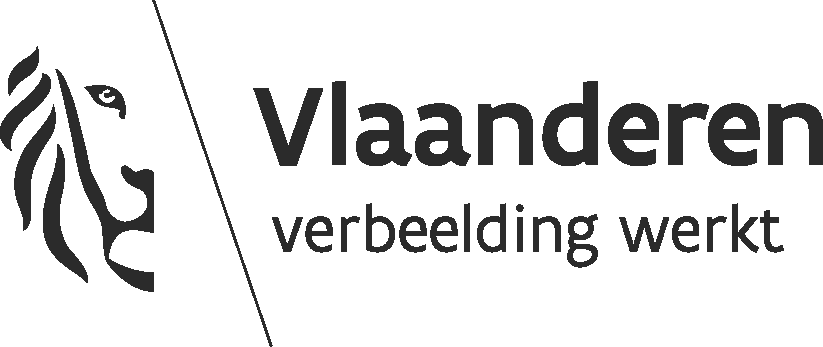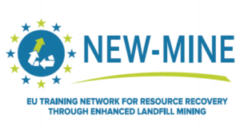The current energy transition faces many challenges across the various stages of the metal supply chain (from mineral extraction to product end-of-life). On March 12, 2020, several EU H2020 projects and other partners team up to organise a seminar in which a high level expert panel will discuss these challenges from different perspectives (coming from the private sector, NGO, academia, research institutions and international organisations). After a brief keynote, challenges in exploitation, processing and recycling will be analysed in the light of the EC Green Deal. Participants will further enrich the reflection during an interactive debate, and filter out several recommendations towards the EC. The event ends with a networking reception. The event takes place on March 12, 2020 in the Flemish Parliament in Brussels and is free of charge. Targeted participants are professionals from different sectors working on these and related topics. Registration is mandatory.
The European Commission aims to become ‘the first climate-neutral continent by 2050’. An ambitious “European Green Deal” should ‘enable European citizens and businesses to benefit from a sustainable green transition’, which should be ‘just and socially fair’ for all. This EU decision is undoubtedly good news in the current context of climate crisis and creates many opportunities for the European society and industry. However, the proposed transition towards ‘green technologies’ (e.g. renewable energy) relies heavily on ‘critical raw materials’ such as lithium, cobalt, tungsten, rare earth elements, etc.
Many challenges lie ahead to materialise this Green Deal: the current social and environmental impact of extraction and processing of resources is high; supply chains of minerals and metals are not transparent and lack traceability; recycling efficiencies are often low; the dependency on non-EU countries is high and increasing; etc.
An inter- and transdisciplinary panel of experts intends to highlight several key issues across the metal supply chain. Based on this analysis, they will put forward several policy recommendations and engage with the audience to further the discussion at EU level.
During a poster session, various EU projects will present their proposals to tackle the challenges of the metal supply chain.
| 12:30 | Registration (mandatory to enter the Flemish Parliament) |
| 13:30 | Welcome and introduction by EASME (Speaker tbc) |
| 13:40 |
Prof. Ester van der Voet of UNEP – International Resource Panel (IRP): Keynote on the latest scenarios on the metals needed for climate neutrality
|
| 14:00 |
Challenging the Green Transition at each link of the metal supply chain (15’ pp):
|
| 15:15 | Coffee break + poster session |
| 15:45 | Interactive panel debate |
| 16:45 | Conclusions by Saïd El Khadraoui (former MEP – European Political Strategy Centre) |
| 17:00 | Networking reception + poster session |
| 18:00 | End |
Resources
- The European Green Deal (COM/2019/640 final)
- Inconvenient truths of the circular economy – Design for recycling (Markus Reuter interviewed in Aurubis Annual Report)
- Our demand for electric cars and smartphones is drying up the most arid place in the world – A Danwatch Investigation
Details
- Date: 12 March 2019, 13h30-17h ( cocktail until 18h; Registration from 12h30 onwards)
- Venue: Flemish Parliament, entrance at De Loketten: IJzerenkruisstraat 99, BE 1000 Brussels
- Registration: This event is free of charge, but prior registration is mandatory to be able to enter the Flemish Parliament!
|
|
Organisation
This event is organised by a broad cluster of EU projects funded by the EU Research and Innovation ‘Horizon 2020’ programme (NEMO, CROCODILE, TARANTULA, ION4RAW, NEXT, MIREU and SecREETs), and by the Make-ICT-Fair project (funded by the EU's EuropeAid programme) and the Fair-ICT-Flanders project (funded by the Flemish Government’s ‘Embedding the International Development Agenda in Flanders’ framework).
.jpg) |
The NEMO, CROCODILE, TARANTULA, SecREEts, NEXT, MIREU and ION4RAW projects have received funding from the European Union's EU Framework Programme for Research and Innovation Horizon 2020 under Grant Agreement No 776846 (NEMO – h2020-nemo.eu), GA No 776473 (CROCODILE – h2020-crocodile.eu), GA No 821159 (TARANTULA – h2020-tarantula.eu), GA No 776559 (SecREEts), GA No 776804 (NEXT – www.project-next.eu), GA No 776811 (MIREU – mireu.eu), GA No 815748 (ION4RAW – ion4raw.eu). The Make-ICT-Fair project is funded by the EU's EuropeAid programme. |
 |
The Fair-ICT-Flanders project is funded by the Flemish Government’s ‘Embedding the International Development Agenda in Flanders’ framework. |


